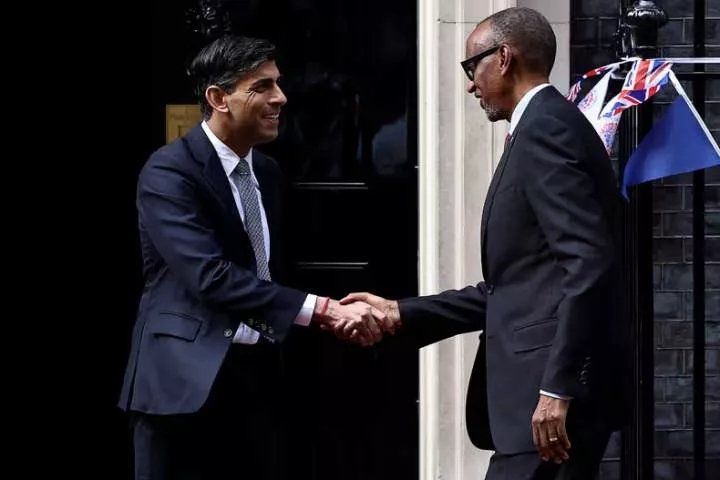As part of a voluntary initiative designed to help reduce the backlog of refugees whose requests to stay in the United Kingdom (UK) have been denied, the British government has proposed a plan to pay asylum seekers up to £3,000 ($3,836) apiece to migrate to Rwanda. To be eligible, the asylum seekers must voluntarily opt for the option. So far Britain has suffered significant opposition to its Rwanda-asylum plan.
![Britain offers £3,000 to asylum seekers opting to relocate to Rwanda [Getty Images] Britain offers £3,000 to asylum seekers opting to relocate to Rwanda [Getty Images]](https://static.netnaija.com/i/nRaMO8JWKdq.webp)
This plan according to Reuters is an exempted move from the UK’s original plan to forcibly deport most asylum seekers to Rwanda, a move which has suffered significant setbacks.
On the contrary, it follows an established government policy in which asylum seekers are given financial support to return to their home countries from Britain; but, under the new proposal, the funds will only be granted to those who volunteer to move to Rwanda.
Kevin Hollinrake, a junior Business Minister, lauded the plan, stating that it seems a good use of public funds. He argues that the plan seems like a cheaper alternative to taking care of people in the European country who had been refused refuge but not deported yet.
“So, £3,000, of course, that’s a lot of money, but nevertheless, it costs a lot of money to keep people in the UK who are failed asylum seekers,” Hollinrake told LBC Radio.
Rwanda-asylum push back
Recently, the British government’s proposal, spearheaded by Prime Minister Rishi Sunak, to designate Rwanda as a safe location for asylum seekers encountered a major roadblock.
According to the BBC, the UK government suffered five defeats in the House of Lords over its deportation bill. The purpose of the bill is to establish Rwanda as a secure location for the transfer of asylum seekers to avoid appeals postponing deportation.

Back in March 2023, UK Prime Minister Rishi Sunak spoke by phone with President Paul Kagame of Rwanda about the heavily debated plan to send migrants to Rwanda. The conversation centered on how both countries could collaborate to disrupt smuggling while addressing humanitarian concerns.
Since then, the plan has faced a lot of opposition. The idea put up by the prime minister of the United Kingdom, who is opposed to irregular migration, is to deny citizenship and asylum requests from those who arrive in the country in tiny boats. After being deported, these individuals would not be allowed to return or carry out any of those acts again.
But critics, especially Conservatives, contend that it would compromise judicial independence and put people at risk.

![Britain offers £3,000 to asylum seekers opting to relocate to Rwanda [Getty Images]](https://brainboxnews.com/storage/2024/03/Britain-offers-3000-to-asylum-seekers-opting-to-relocate-to.webp.webp)





